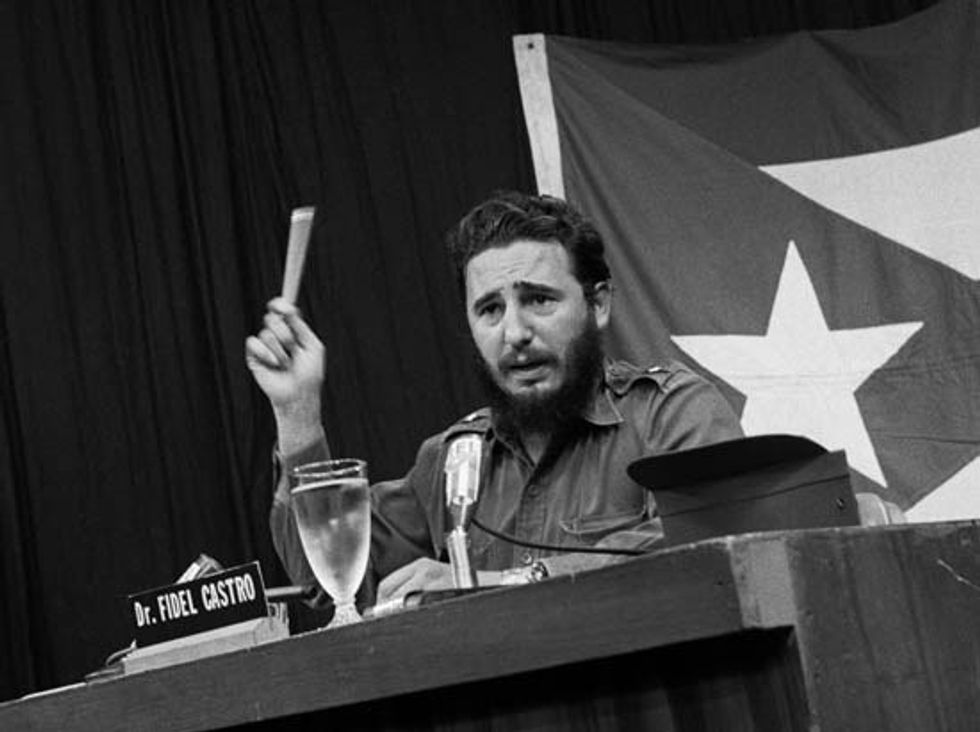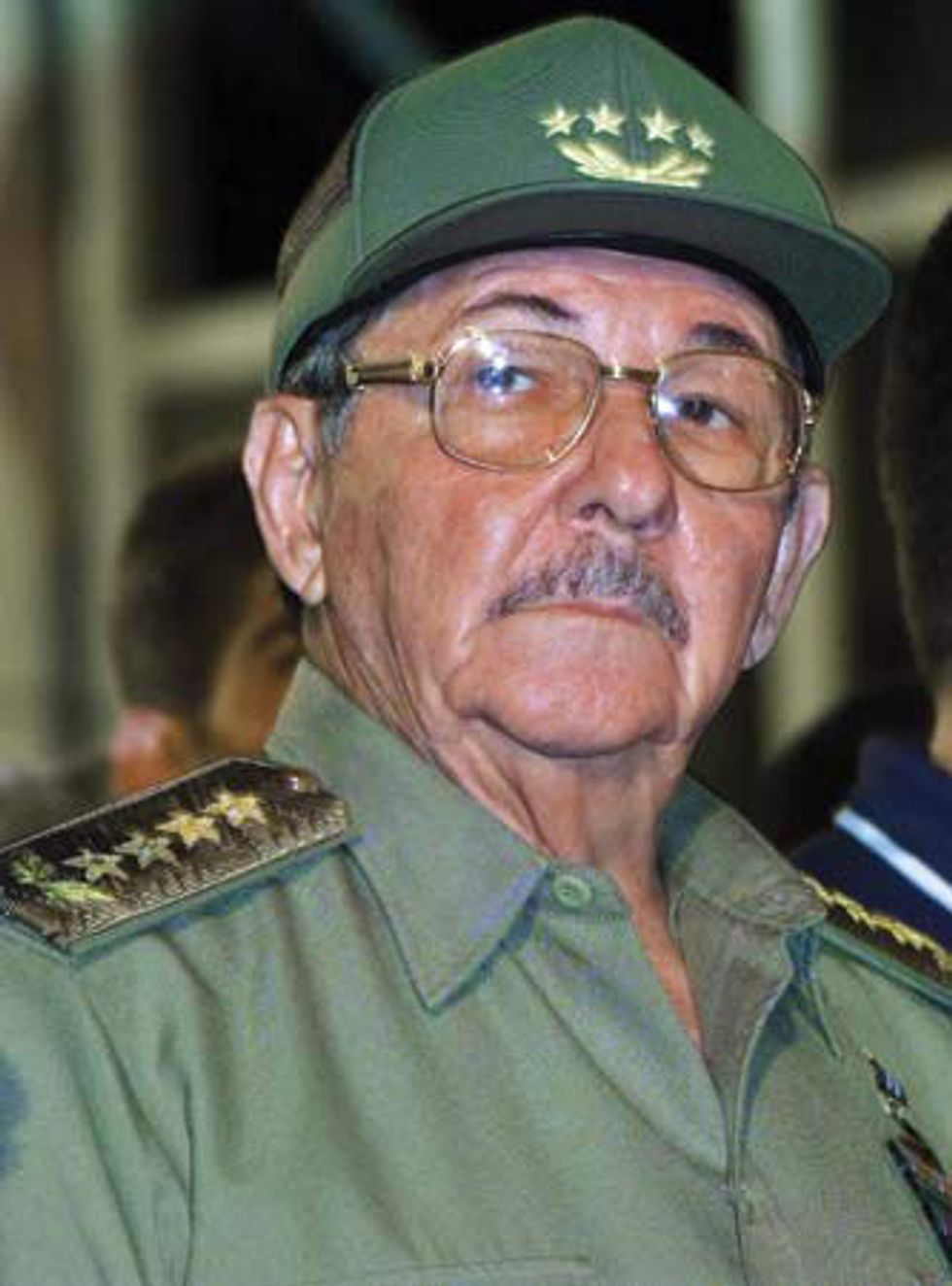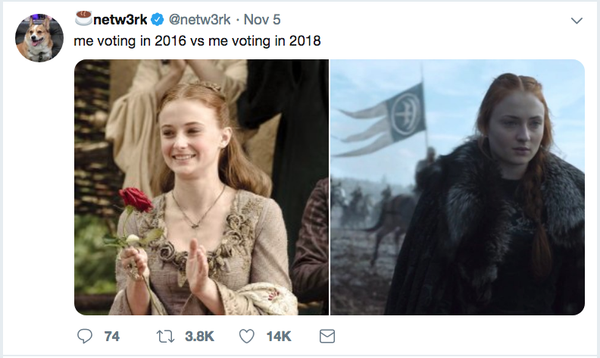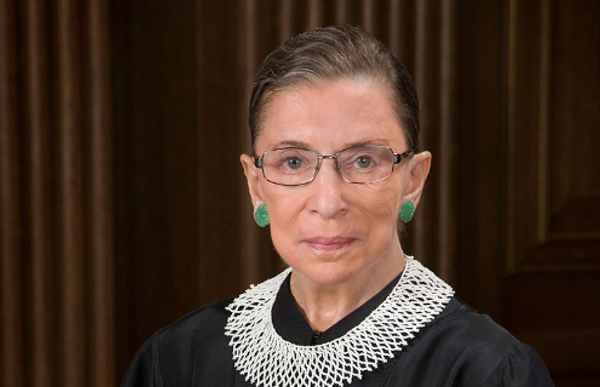On November 26, 2016, at around 1 a.m., news broke around the world of a death. A fixture, a man, a dictator, a monster.
Dead.
Fidel Alejandro Castro Ruz was many things. Frankly, none of them were good. A bastard (though he wouldn't admit it), a ruthless dictator and the single-handed destroyer of a nation with the resources and means to be so much more than a tourist spot and a hell hole. Wasted. A revolution that brought mass suppression and imprisonment and created an air of fear just 90 miles south of another nation where rights and liberties were protected and recognized.
Above: Fidel Castro in a Cuban telecast, May 27, 1960
There are people that would argue that Castro brought progress to Cuba—improving research and education. That these gains make up for the losses in human lives. That this progress is more valuable than human rights. To those people, I say this: for over 50 years, the Cuban government under Castro's control, and later under his heavy-handed guidance, kidnapped, tortured and murdered people. They banned literature, crushed the media and opposition and rewrote history to indoctrinate the people. Eventually, people didn't even need to be brainwashed to understand the basic rules of Cuban life. Don't make too many friends, they might be gone next week. Be careful with your words, they'll be used to seal you in a cage. Do not question the government, it's not worth it. It's how dictatorships work.
But all of this is common knowledge. There are two questions here: how are people feeling about this? And what does this mean for Cuba?
Let me answer the easier question first: what does Castro's death mean for Cuba? Will riots demanding rights and liberties and freedoms tear up the streets? Will the Cuban people finally be liberated and bathe in the golden light of justice for all? No. The simple answer is no. The obvious reason being that the Cuban government has officially been run by Raul Castro since 2008 and still maintains the same oppressive and evil policies of the original Castro.
Above: Raul Castro
But there is something else to consider: the will of the Cuban people. Change is not something that can be imposed by a government. Rebellion is not something that will spring overnight in a nation where there is no basic understanding of human rights. The fact is that the Cuban people are complacent. No American negotiations, major death or intervention will teach them to value human rights and demand their protection. It is not until you have your cousins tell you that they are aware of the atrocities committed by the government and still prefer it because of the stability of the Castro family that you can really begin to comprehend how little a human life means in Cuba. And for that reason, above all else, Cuba will remain as it is.
The last to question to answer here is, how are people feeling? I can't claim to speak for the Cuban population at large, but I can speak for myself. My parents fled the Cuban government in the early 90s, my father having been imprisoned for sharing a less than pro-government story. My mother is a reformed Communist who is officially a traitor to the Cuban government. They came to the United States, broke and homeless. But it was here that they became human. It was this country that gave my parents citizenship. It was here that they had their two daughters—my sister and myself. As my dad says, Cuba gave him a prison sentence and a passport that could take him nowhere. America gave him a passport that can take him anywhere.
I remember in March of this year, when Obama visited Cuba (the first time a sitting U.S President had done so in over 50 years) to begin normalizing relations. I remember scrolling through the photos and I stopped at one in particular. It was a photo of Malia and Sasha Obama disembarking from Air Force One to begin their tourist adventures of Cuba. Without warning, I felt angry. I felt my throat tighten. These girls, aged the same as me and my sister, were exploring a place they had no ties to. For them, it was a vacation and an adventure. For me, a girl who never got to meet either of her father's parents and has yet to meet her uncle and most of her direct family, it was a slap in the face. The big family my parents had always talked about—brothers, sisters, aunts, uncles, cousins, grandparents and more—was still there. And I was here.
Friday night, the man I blamed for this died. It doesn't make me happy nor do I feel relief. Cuba has a long way to go. But, if nothing else, Castro's death does signal a new hope. So for that, I send some well wishes south this week.
Buena suerte, Cuba.























